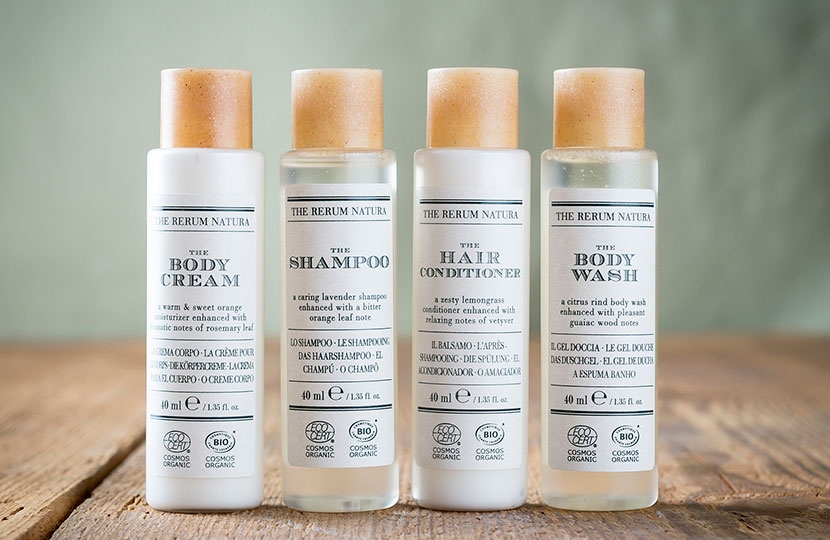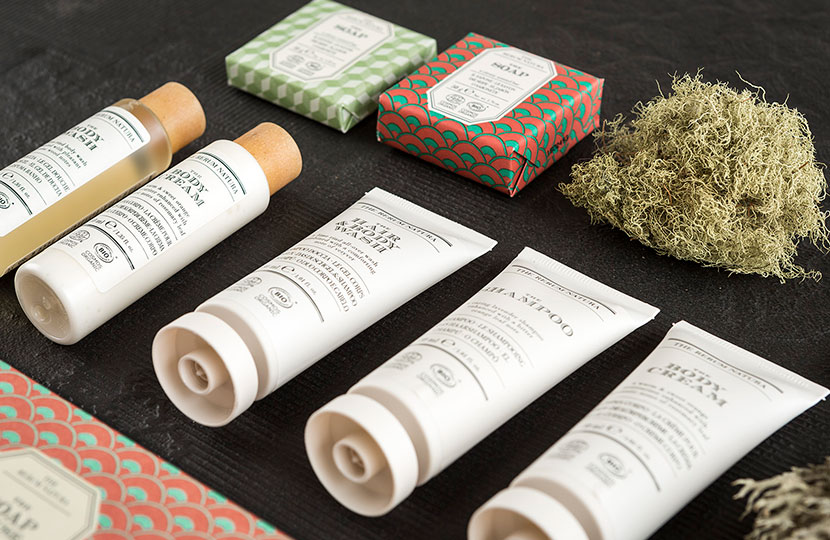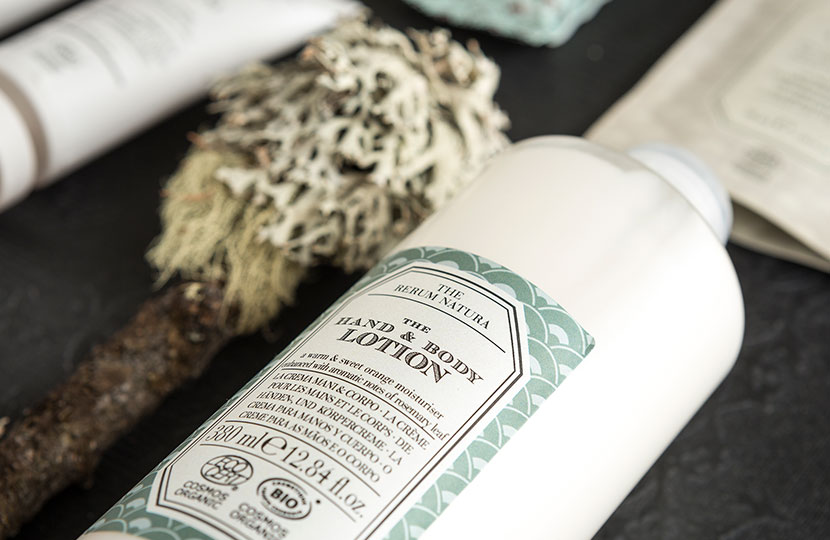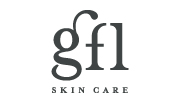COSMOS, THE ORGANIC BODY CARE
The Rerum Natura chose to guarantee total safety through the Cosmos label organic certification that controls the entire manufacturing process and lists the organic and natural ingredients on the label.
A Cosmos certified organic product is guaranteed by one of the most respected certification body care worldwide.
WHO IS COSMOS?
In 2002, the five major European organic and natural cosmetics standard-setting organisations came together to harmonise their respective standards. Their standards are all together used by over 1600 companies manufacturing and selling over 25,000 products in more than 45 countries worldwide – some 85% of the certified cosmetics market.These five organisations put their significant differences aside and started to work together to resolve the different approaches and reach agreement on a harmonised standard addressing the needs of their members and existing certified operators, as well as of consumers.
The harmonised standard was approved by the respective organisations and published in January 2010. Later, these organisations decided to establish a non-profit international association to own, manage and develop the Standard.
The founding members are: BDIH (Germany), Ecocert(France), Cosmebio (France), ICEA (Italy), SoilAssociation (UK). COSMOS stands for COSMetic Organic Standard.





WHY CHOOSING COSMOS AS ORGANIC COSMETIC CERTIFICATION?
The Rerum Natura chose to guarantee total safety through the Cosmos label organic certification, that controls the entire manufacturing process and lists the organic and natural ingredients on the label.Cosmos requires that the packaging is minimised and environmentally friendly and that an environmental and waste management plan for factories is in place.
With more than 1400 raw materials already COSMOS approved, ECOCERT is the certification body providing the largest choice of raw materials: in April 2014, more than 650 products worldwide were COSMOS-certified.
WHAT DOES THE COSMOS STANDARD COVER?
To obtain the Cosmos Organic Certification you need to meet these key requirements:
> 95% of PPAI must be BIO
> 20% of the total of ingredients must be BIO (For Leave ON products)
> 10% of the total of ingredients must be BIO (For Rinse OFF products)
The standard recognizes five main categories of ingredients used in cosmetic products and specifies the requirements for each of them:
- Physically processed agro-ingredients – these are specifically listed and at least 95% of them must be organic. Only simple physical processes are allowed (similar to foods);
- Chemically processed agro-ingredients – made from agricultural raw materials and clean manufacturing processes that comply with the principles of “Green Chemistry”. There is a list of these ingredients that must be made by organic raw materials;
- Water – a vital and basic raw material, its quality is essential;
- Mineral ingredients – must be clean and comply with various environmental rules in their use and in further processing.
- Other ingredients – this is a very restricted category. Some ingredients are necessary for preserving the product (must be simple and must do so with minimal impact), a very few are allowed only temporarily to facilitate the transition from the current situation to the objectives and direction of this standard.
WHAT SHOULD YOU LOOK FOR ON THE LABEL?
There are two types of COSMOS labels: 'COSMOS ORGANIC’ for products meeting the minimum percentages of organic ingredients, 'COSMOS NATURAL’ on those products complying with the Standard in all other respects but not in the minimum organic percentages requirements.The Rerum Natura chose the COSMOS ORGANIC certification as a better choice for your skin.

‘COSMOS ORGANIC’ or ‘COSMOS NATURAL’ always appear right below the logo/mark of the responsible certifier or association, allowing you to recognise your trusted local or national organisation certifying the COSMOS-standard. In addition, you will find on the label the percentage of organic ingredients in the product. This is normally the percentage of organic ingredients on the whole product, but, as some products contain a lot of water and mineral ingredients that can never be organic, you may also see the percentage of organic ingredients excluding these two elements. Finally, there are requirements for how the certified company describes itself and its products to make sure any literature and claims are accurate and not misleading.
Loading






